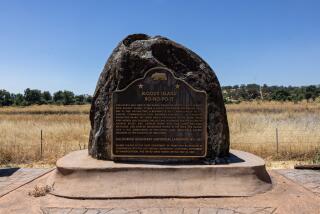What’s in a name? Lots of controversy
- Share via
Re “Oh, Kolkata!” Opinion, March 7
It’s hard to believe that David Lamb was not being deliberately ironic while complaining about changing the names of cities in Africa and Asia from those imposed by colonial rulers to those chosen by their own citizens. He says that such names “never seem as good a fit as the old ones.”
They may not conjure up the images of Graham Greene and Rudyard Kipling, or summon up the ambience found in literature, but of whose ambience and literature are we talking? What was the experience of this romantic past for the people of those continents? The people who were forced into submission now claim the right to choose what names they please.
Forgive me if I am too obtuse to realize that what he is writing is satire.
BEATRICE STEWARD
Long Beach
*
Although some nations have chosen to change a site’s name to wipe out the stain of colonialism, history has shown that empires have changed names to try to erase any link of a people with its past.
This was the case when the Roman Empire wanted to, in the words of eminent historian Bernard Lewis, “rid themselves of this troublesome people” -- the Jews -- after the failed Bar Kokhba revolt in 135.
Rome chose to rename Jerusalem as Aelia Capitolina. And to further distance the Jews from any link to their homeland, it abolished the names Judea and Samaria and dubbed the country Palestine, after the “long-forgotten” Philistines. I’ve often wondered what our world would be like today if that tiny sliver of land were still called Judea.
GABRIELLE RABIN TSABAG
Los Angeles
More to Read
Sign up for The Wild
We’ll help you find the best places to hike, bike and run, as well as the perfect silent spots for meditation and yoga.
You may occasionally receive promotional content from the Los Angeles Times.






